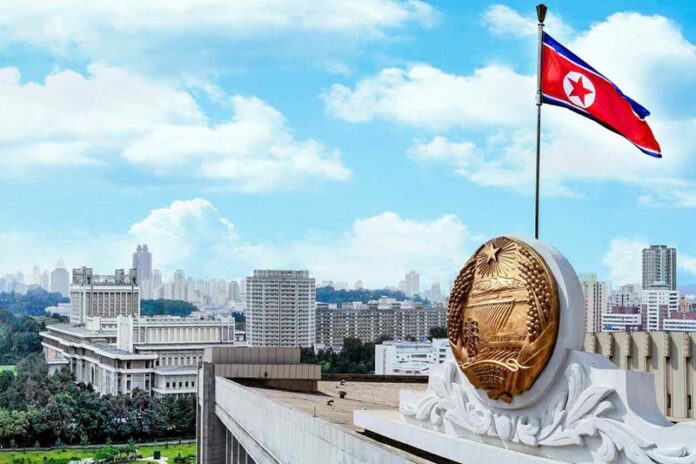North Korea recently announced plans to enact the “Pyongyang Cultural Language Protection Act” at the upcoming Jan. 17 meeting of the Supreme People’s Assembly. The government is now conducting lectures aimed at explaining the rationale behind the law to propaganda officials throughout the country.
According to a Daily NK source in South Pyongan Province on Dec. 22, staff in the South Pyongan Province Party Committee’s propaganda and agitation department attended a Saturday cadre study meeting on Dec. 17. While instructing the staff on the various directions they would be taking their work, the director of the department mentioned the adoption of the “Pyongyang Cultural Language Protection Act.”
The cadre took time during the meeting to set forth the reasoning behind the new law. “Our party’s propaganda and agitation workers are not properly doing their duty as warriors, and the amount of reactionary culture that has mixed into our natural language has become intolerable,” the director said, adding, “[North Korea] is standing at a dangerous crossroads [that will decide whether] our nation’s cultural language will be erased.’”
In other words, the law is intended to comprehensively crack down on North Koreans who watch South Korean movies and dramas and try to copy South Korean-style fashion, hairstyles, and ways of speaking. In fact, South Korean-style phrases, such as referring to comrades as “friends,” using the pet name “oppa” (literally “older brother”) to refer to one’s husband, and the South Korean word for “embarrassed,” are popular among young North Koreans.
North Korean authorities also appear to recognize this reality, and the South Pyongan Province official pointed this out during the lecture, saying: “We have failed to protect party members, workers, and young people from the enemy’s invasive propaganda and agitation. Now, reactionary culture is rampant throughout our entire society.
“Young people [10 to 30-year-olds] think that copying the speech and behavior of the [South Korean] puppets is just part of keeping up with new trends or the novelty of taking part in a new culture,” the director continued, adding, “This is exactly what South Korea and our enemies are hoping for, so we must focus our work on completely crushing [the invasion of reactionary culture].”
The “anti-reactionary thought law,” which was enacted in late 2020, banned South Korean styles of singing or speaking, punishable by forced labor or up to two years of re-education through labor. Combined with the “Pyongyang Cultural Language Protection Act,” these two laws appear to aim to eliminate the South Korean pop culture wave that has spread across the younger generation.
During the lecture, the director also urged attendees to re-awaken themselves as propaganda workers. “We, as warriors on the frontlines of propaganda and agitation, have long failed the public,” attendees were told. “In our aims for the next year, wiping out reactionary culture must be our greatest focus.
“Young people are lowering the red flag of revolution. They admire and go out of their way to try to learn capitalist ways of speaking. This is a dangerous social trend,” he went on to emphasize. “We must precisely discern the state of affairs, grasp the problem, and set out our course of action for this fight.
“As the Cultural Language Protection Act comes into effect, we will set a direction for distinct ideological projects to ideologically awaken the youth, party workers, and laborers in 2023, with those plans to be reviewed by the end of January.” In short, he announced that there would be a thorough review of their activities in the future.
The “Pyongyang cultural language” refers to North Korea’s standard dialect, which is rooted in one of Kim Il Sung’s “teachings” and has been in use since the 1960s. North Korea claims the language is a “synthesis of the unique character and excellence of the national language and constitutes the original form of the modern, sophisticated Korean language.”
Translated by Rose Adams.
Please direct any comments or questions about this article to dailynkenglish@uni-media.net.



















